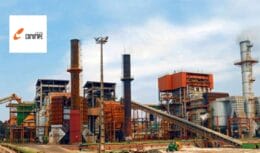
Truck drivers strike against the constant rise in the price of gasoline and diesel at gas stations, practiced by Petrobras
Truckers' strike: every category is summoned by the National Road Cargo Transport Council – CNTRC, through a note, for a stoppage, for an indefinite period, from the next 25th of July, truck driver's day (São Cristovão). Cristovão means “he who carries Christ”.
Read also
- Gasoline prices soar again, ethanol confirms a significant increase at the plant, CNG breaks a record of R$ 5 at gas stations and consumers have nowhere else to run
- Renault asked its team to copy diesel engine fraud from Volkswagen, the world's largest vehicle manufacturer, to cheat vehicle emissions results
- Oil, uranium, copper and aluminum prices could skyrocket globally because of the 'green economy'
- Ethanol price soars and reaches almost R$ 7 at gas stations; reduction promises to arrive in the coming weeks to ease the consumer's pocket
- Gasoline, ethanol and diesel prices keep rising, deputies refuse to change ICMS amid skyrocketing fuel prices and Petrobras 'pays the duck'
The CNTRC alleges, in one of the justifications presented, that the readjustments in fuel prices promoted by Petrobras, without adequate explanations, violate even determinations of the Consumer Protection Code – CDC.
He also mentions that attempts to discuss the matter with the company's management were frustrated. In addition, the forwarded pricing policy proposal, which received the promise of analysis by the company, has yet to receive a response.
Click herei to read the full note released.
Diesel price rises again and truck drivers demand tax on oil exports to alleviate fuel costs
After the price of diesel rose again, with the end of a temporary exemption from federal taxes, which was valid for two months, the CNTRC group (National Council for Road Cargo Transport), which brings together representatives of truck drivers, defended the taxation of exports oil and its use to reduce fuel taxes. The charge was issued on the 25th, by the group, in an open letter to President Jair Bolsonaro.
Since 2016, Petrobras has adopted the Import Parity Price (PPI) to readjust fuels in Brazil. At the time, readjustments were practically daily, following fluctuations in the international market, but now there is no set deadline.
In 2018, truckers promoted a historic strike against the price of diesel
The demand from truck drivers, who even promoted a historic strike against diesel prices in 2018, follows constant complaints from President Bolsonaro himself about the cost of fuel.
In the letter sent to President Bolsonaro, the CNTRC asks the Government to adopt the taxation of crude oil exports “as an immediate measure”, while other claims must be analyzed, such as the end of the search for import parity.
“Resources arising from taxation on the export of crude oil may be used to compensate States and the Union in the reduction of taxes on fuel”, suggested the group of truck drivers.
Since Luna took office, on April 19, Petrobras has carried out only one price adjustment (a decrease for gasoline and diesel), announced on April 30. The international scenario contributed, as prices were somewhat stable.
Gasoline from Petrobras, sold to fuel distributors, has risen by more than 40% this year, and diesel by 34%
Even with the retreat given by the current president of Petrobras, the state-owned gasoline sold to fuel distributors accumulates an increase of more than 40% this year, while diesel, of 34%.
In the midst of these discussions, the Brazilian Association of Fuel Importers (Abicom) calculates that the average value of Petrobras gasoline is currently 2% below the import parity and diesel 3% below, making foreign purchases unfeasible for its members.
In the letter, the truck drivers' representative also states that Petrobras' current management has already disclosed in several ways its intention to maintain the Import Parity Price policy, "altering only the correction intervals".
The CNTRC also stated that it was not possible to obtain an immediate response from government agencies and Petrobras.
The skyrocketing price of gasoline, ethanol, diesel and CNG makes drivers resort to biomethane fuel; fuel came to 'save' and ease the consumer's pocket
With each passing day, the prices of gasoline, ethanol and diesel increase, and, with that, Brazilians who work with passenger transport, such as taxi drivers and app drivers, who used Natural Vehicular Gas (CNG), are migrating to biomethane, since CNG is also starting to weigh on their pockets. Biogas can be used without problems in vehicles that have a gas kit.
Petrobras made a new readjustment in the price of CNG, increasing 39% for distributors. According to the survey carried out by the National Agency of Petroleum, Natural Gas and Biofuels (ANP), in the last week of May, the price of vehicular gas to the final consumer already reached R$ 4,199 in some parts of the city of Rio de Janeiro. Therefore, despite not being a new solution, biogas has become popular because it yields more and is cheaper.
Currently, only ten fuel stations in Rio de Janeiro offer CNGbiomethane (biogas), but, according to Jorge Mathuiy, commercial director of the MAT cylinder industry, by the end of the year, this number should increase significantly, since biomethane has a cheaper acquisition cost and is completely safe.
The great advantage of using biomethane is that, in addition to greater autonomy, the fuel offers greater safety, as it is lighter than air, and, in the event of a leak, the gas quickly dissipates, which reduces the risk of explosions and fires. Whereas alcohol ignites at 200°C and gasoline at 300°C, for biogas to ignite, it must be subjected to a temperature above 620°C.
Drivers still find it difficult to identify biomethane at gas stations. The tip is to ask the attendant if the option is available or check at the pump if the supplier is one of the companies that distribute the fuel, for example, Neogás.












